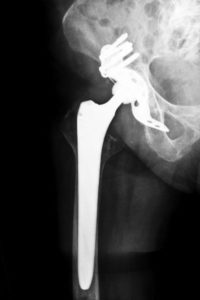
The R3 Acetabular System, manufactured and marketed by Smith & Nephew, was first introduced by the London-based company in 2007. Two years later, the hip replacement device was launched across the world. While thousands of patients have reported success with the implant, the company voluntarily recalled the optional metal liner part of the device on June 1, 2012.
Attorney Group for Kansas is currently providing free, no-obligation consultations to those who believe they may be eligible to file a Kansas Smith & Nephew hip lawsuit. We can help answer your questions and put you in touch with an affiliated Kansas Smith & Nephew hip lawsuit attorney. Depending on the complications you experienced, you may be entitled to recover damages for lost wages, pain and suffering, and medical expenses you may have incurred as a result of your injury.
What is the R3 Acetabular System?
After the company issued the recall in 2012, it stated that it had received reports of early device failure from patients who had been fitted with the device. While Smith & Nephew acknowledged that there had not yet been any reports of metal toxicity like there have been with other metal-on-metal hip replacement devices, the manufacturer did state that patients may experience infections, fractures, and dislocations.
In 2013, the U.S. Food and Drug Administration (FDA) released a warning to inform patients who had received metal-on-metal hip implants, including the R3 Acetabular System, that they may wish to consider undergoing additional medical tests to determine whether they were experiencing elevated metal levels in their blood. Additionally, the FDA announced that it would consider whether to make all metal-on-metal hip implants ineligible for approval through its 510(k) process, an often criticized method by which a product can be placed on the market without clinical testing if it can be shown that it is similar in design and function to another product currently on the market.
Patients who have suffered from swelling, implant loosening, pain, or other side effects that could indicate their implant is prematurely failing may be eligible to file a Kansas Smith & Nephew hip lawsuit. Additionally, patients may be eligible to file a Kansas Smith & Nephew hip lawsuit if they suffered from:
- Bone deterioration
- Dislocation
- Additional revision or removal surgeries
- Metal poisoning or toxicity
Metal toxicity, or metallosis, can occur if the metal components of the hip implant rub together and cause shards of cobalt and chromium to be released into the blood. You may be eligible to file a Kansas Smith & Nephew hip lawsuit if you or someone you love noticed one or more signs of metallosis such as:
- Confusion
- Infections
- Emotional issues
- Dizziness
- Numbness, tingling or burning in extremities
- Headaches
- Sight or hearing problems
- Skin rashes
- Tremors
- Cardiomyopathy
- Tremors
Contact Attorney Group for Kansas for More Information
If you or someone you love has been fitted with the Smith & Nephew R3 Acetabular System and suffered from complications that you believe were caused by the implant, you may be eligible to file a Kansas Smith & Nephew hip lawsuit. Contact Attorney Group for Kansas today for a free, no-obligation consultation to help you determine whether you have a case. If you do, we can connect you with an affiliated attorney who can file your Kansas Smith & Nephew hip lawsuit and better your chances of recovering the damages to which you may be entitled. Call today.





